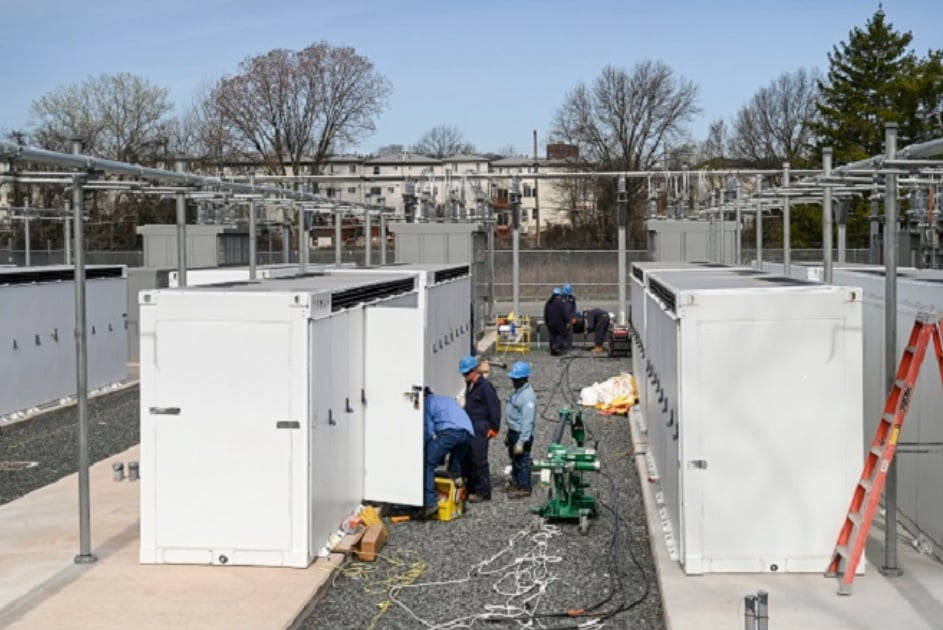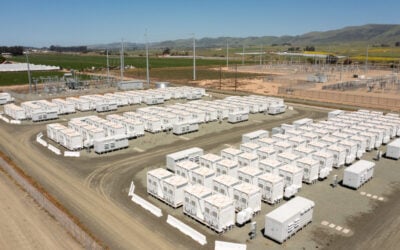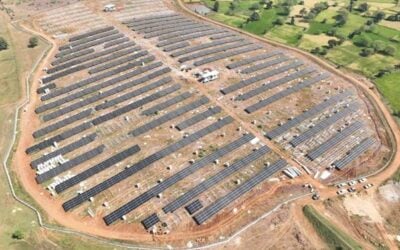
The New York State Inter-Agency Fire Safety Working Group has recommended changing the state fire code to better manage risks associated with battery storage systems installed in the US state.
The group was brought together last summer on the orders of New York’s governor, Kathy Hochul, following three fire incidents at battery energy storage system (BESS) facilities which have occurred just as the state ramps up its efforts to reach its 6GW by 2030 energy storage policy target.
Enjoy 12 months of exclusive analysis
- Regular insight and analysis of the industry’s biggest developments
- In-depth interviews with the industry’s leading figures
- Annual digital subscription to the PV Tech Power journal
- Discounts on Solar Media’s portfolio of events, in-person and virtual
Those fires, which happened between May and July 2023, were found in the group’s initial findings to have not caused harmful toxins to be released, nor have any injuries been reported.
They have nonetheless seriously dented the public perception of battery storage safety, not helped by a much larger number of incidents that have occurred due to defective or incorrectly used lithium-ion batteries in micromobility devices such as scooters and e-bikes.
The situation around micromobility devices – which do not have the same safeguards and multiple layers of protection that BESS units must be equipped with – has even led to prominent fire experts describing it as a “crisis” in New York, particularly in the densely packed urban areas of New York City.
“The battery energy storage industry is enabling communities across New York to transition to a clean energy future, and it is critical that we have the comprehensive safety standards in place,” Governor Hochul said as the Inter-Agency Working Group’s recommendations were announced yesterday.
The group comprises agency staff from the New York State Division of Homeland Security and Emergency Services, New York State Office of Fire Prevention and Control, New York State Energy Research and Development Authority (NYSERDA), New York State Department of Environmental Conservation, Department of Public Service and the Department of State.
Those agencies have been joined in the group by fire safety and battery subject matter experts from the energy storage industry. The group examined recent fire and system failure events and inspected every BESS installation in the state, before producing its recommendations.
A total of 15 have been proposed and a public consultation period on them has opened up until 3 pm EST on 5 March. Input and comments should be directed towards NYSERDA which is handling that process.
15 recommendations for the Fire Code of New York
The group and subject matter experts that collaborated with it studied the Fire Code of New York State (FCNYS) to identify “gaps in codes and best practices,” the governor’s office said yesterday. It’s recommendations therefore are aimed at being codified as part of the FCNY.
New York had already been ahead of the curve among US states in its approach to safety, having adopted the regulations of the draft 2021 International Fire Code which was the first to include detailed regulations around the treatment of lithium-ion (Li-ion) batteries.
It also already has very stringent regulations prohibiting battery installations inside buildings in NYC. The new recommended changes to the code will be applicable to systems of 600kWh capacity and above.
The recommendations can be found in full via the NYSERDA website, but broadly speaking fall into three categories of recommendations to update the FCNY, recommendations for additions to the code and some additional considerations.
They include a proposed requirement that industry stakeholders in projects pay for peer reviews of all projects by subject matter experts. This is aimed largely at helping authorities having jurisdiction (AHJs) to evaluate BESS projects in development without having to also become experts in the field themselves.
There are also proposals that BESS cabinets be fitted with explosion control equipment as mandatory, where previously this was only required for ‘enterable’ BESS units in rooms or walk-in areas.
Other recommendations include mandatory signage and closed-circuit television (CCTV) security, 24/7 monitoring and access to battery management system (BMS) data, the putting in place of emergency response plans and periodic inspections of BESS units to be required.
Presently, battery storage units in New York that are owned by utilities are exempted from the Fire Code. The Working Group recommended a removal of this exemption.
An industry-led initiative from the American Clean Power Association (ACP) recently published a battery safety incident guide for first responders, while in California, the state passed legislation last year that requires BESS owners to put in place safety and communications protocols with first responders and other key stakeholders.
Energy-Storage.news’ publisher Solar Media will host the 6th Energy Storage Summit USA, 19-20 March 2024 in Austin, Texas. Featuring a packed programme of panels, presentations and fireside chats from industry leaders focusing on accelerating the market for energy storage across the country. For more information, go to the website.






